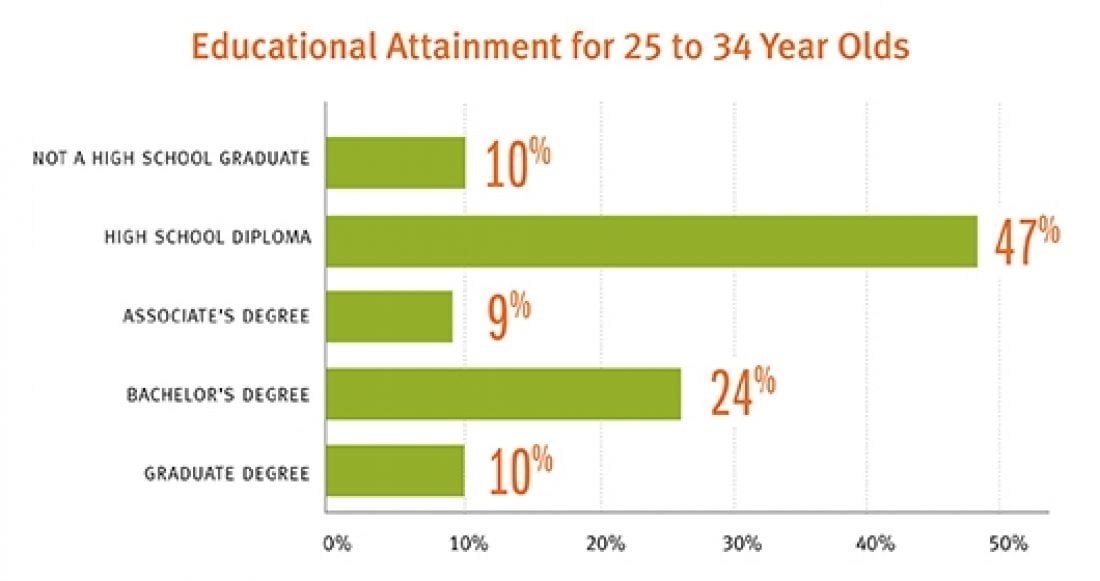The Percentage of Adults Earning a Bachelor’s Degree is on the Rise

Higher educational attainment— earning a bachelor’s degree or above —is becoming more commonplace among Americans between the ages of 25 and 34.
This is an important academic milestone — one that can help propel individuals down a path to economic success. Bachelor’s degree holders typically earn 66% more than workers with only a high school diploma. These graduates are also far less likely to face unemployment, according to the U.S. Department of Education.
In 2015, 34% of adults between the ages of 25 to 34 had earned at least a bachelor’s degree. This is an improvement over the 2008 rate, when just 29% of adults ages 25 to 34 had hit the bachelor degree benchmark.
Across the country, the prevalence of bachelor’s degree holders varies widely. For example: The proportion of adults who hold a bachelor’s degree or higher is 20% in Nevada, 51% in Massachusetts, and 72% in Washington, D.C.
Visit the KIDS COUNT Data Center for more education data at the state and national level:
Teens ages 16 to 19 not in school and not high school graduates
Educational attainment of working age population 25 to 64
Educational attainment of population ages 25 to 34
Children who have difficulty speaking English
Children who speak a language other than English at home






